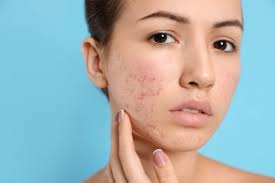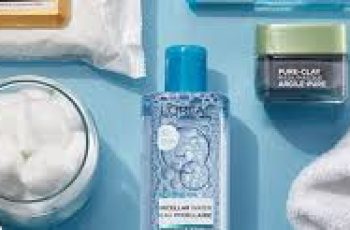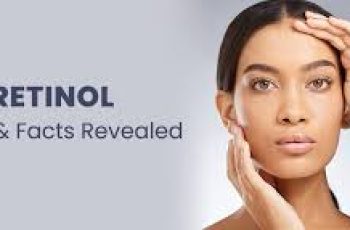
When to See a Dermatologist for Acne
Should I See a Dermatologist for Acne?
If you’ve been struggling with acne despite using various over-the-counter products and don’t see improvement, it might be time to consider seeing a dermatologist.
You might be asking yourself, “Do dermatologists actually help with acne?” The answer is yes! Dermatologists are trained professionals who specialize in skin conditions, including acne.
Their expertise allows them to provide the best possible treatments, which can clear your skin faster and more effectively than general skincare products.
Dermatologists are not just experts in treating acne; they are trained in all skin diseases.
They can guide you toward treatments that suit your unique skin type, saving you from wasting money and time on products that might not work for you.
Additionally, many insurance plans cover visits to dermatologists, and a large portion of prescription costs may be covered as well.
So, if you’ve tried every acne treatment under the sun without seeing results, it’s a good idea to consult with a dermatologist.
Whether your acne is mild, moderate, or severe, dermatologists have the experience and tools to help you manage and treat it effectively.
You can easily find a dermatologist near you by visiting resources like the American Academy of Dermatology, which provides a list of board-certified dermatologists, or by using online directories for acne specialists.
For personalized advice and a custom skincare routine, you can take our acne skincare quiz to get tailored recommendations from dermatologists, helping you choose the right treatment for your skin.
How to Find an Acne Specialist Near Me
Finding an acne specialist is simple with the help of online tools. Websites like Skin Type Solutions can guide you in locating dermatologists near you who specialize in acne treatments.
These professionals can design a personalized acne skincare regimen based on your skin type and the severity of your condition.
While dermatologists are often the best choice for acne treatment, other healthcare providers such as family doctors and aestheticians can also be helpful, especially for basic acne concerns.
Can a Family Doctor Treat Acne?
Family doctors can prescribe medications for acne, but they are not specialists in dermatology.
Unless a family doctor has specific training in skincare, they may not have the expertise to provide advanced treatments for acne.
Dermatologists and medical professionals trained through programs like Skin Type Solutions are the best equipped to address more complex acne issues.
Can a Pediatrician Treat Acne?
Pediatricians can help manage acne, particularly in younger patients, and can prescribe basic acne treatments.
However, if you’re looking for an acne expert, a dermatologist trained in skincare would be the best option. A dermatologist can provide more specialized treatments and a tailored approach to acne care.
What Can a Dermatologist Do for Acne?
Dermatologists use a variety of treatments to address acne, from basic skincare products to advanced therapies depending on the severity of the condition.
What Do Dermatologists Use to Treat Mild Acne?
For mild acne, dermatologists often recommend topical treatments such as acne cleansers, benzoyl peroxide, antibacterial washes, and retinoids.
These treatments can be effective for managing small breakouts and helping your skin stay clear.
Treatments like the VBeam vascular laser may also be used in certain cases to reduce inflammation and speed up healing.
Additionally, red light therapy can be used to treat pink pimples and reduce redness, making it easier to manage acne flare-ups.
What Do Dermatologists Use to Treat Moderate Acne?
If your acne persists despite using over-the-counter treatments, dermatologists may prescribe oral antibiotics or blue light therapy.
These treatments target the bacteria responsible for acne and help control inflammation. Some dermatologists may also recommend acne facials and facial extractions to clear out blackheads and whiteheads.
Moderate acne that doesn’t respond to topical treatments may require stronger medications, including oral antibiotics such as tetracyclines (minocycline and doxycycline).
For more persistent nodules or cysts, dermatologists may use steroid injections, often referred to as “Kenalog” injections, which help reduce the size and inflammation of painful pimples.
What Do Dermatologists Use to Treat Severe Acne?
Severe acne is characterized by large, inflamed cysts, nodules, and numerous bumps on the skin.
This type of acne is more likely to cause permanent scarring, which makes it especially important to seek professional treatment.
Severe acne is typically treated with stronger medications prescribed by dermatologists.
Prescription retinoids, such as tretinoin or adapalene, are effective in treating severe acne.
Benzoyl peroxide and antibiotics may also be prescribed, but in more severe cases, oral isotretinoin (known as Accutane) is often the most effective solution.
Accutane is an oral retinoid that can offer long-term acne relief if the appropriate dosage is used over the required time period.
What Would a Dermatologist Prescribe for Acne?
Your dermatologist will choose the best acne treatment based on your skin type and the severity of your acne. Here are some common prescription treatments that dermatologists may recommend:
Topical Antibiotics:
Erythromycin: This antibiotic is less commonly used due to antibiotic resistance in acne-causing bacteria.
Clindamycin: Often found in combination with retinoids, clindamycin targets acne-causing bacteria.
Aczone (Dapsone): Contains dapsone, an antibiotic that helps reduce acne-related redness and inflammation.
Benzoyl Peroxide:
Benzoyl peroxide is a common and effective acne treatment. It kills acne-causing bacteria but can cause irritation, dry skin, and free radical damage, leading to faster skin aging.
Despite these side effects, it remains one of the most widely used treatments for acne.
Oral Antibiotics:
The tetracycline family of antibiotics, including minocycline and doxycycline, is frequently prescribed for moderate to severe acne.
These oral medications can disrupt the skin’s microbiome, so they should only be used for persistent or severe acne.
Retinoids:
Retinoids are some of the most effective acne treatments. Isotretinoin, commonly known as Accutane, is an oral form of retinoid used to treat severe acne.
Topical retinoids such as tretinoin, adapalene, tazarotene, and trifarotene can also be prescribed.
Medications that Affect Hormones Used to Treat Acne
For patients whose acne is caused by hormonal imbalances, medications that influence hormones may be prescribed.
Oral contraceptives: Birth control pills are often used to treat acne in patients with polycystic ovarian syndrome (PCOS) or acne caused by hormonal fluctuations.
Spironolactone: This oral medication blocks testosterone, which can be a contributing factor to acne. It is particularly helpful for patients with elevated testosterone levels.
Winlevi® (Clascoterone): A new topical treatment that works by blocking testosterone on the skin, helping to reduce acne caused by hormonal factors.
How to Treat Acne Based on Your Skin Type
To get the best results from your acne treatment, it’s crucial to follow a routine that’s customized to your skin type.
Dermatologists often recommend personalized acne skincare regimens, which include specific products that work best for your skin.
Take the Skin Type Solutions quiz to learn about your skin type and receive expert advice on how to treat acne with a tailored skincare routine.
By addressing your acne with the right products and treatments, you can improve your skin and prevent future breakouts.


